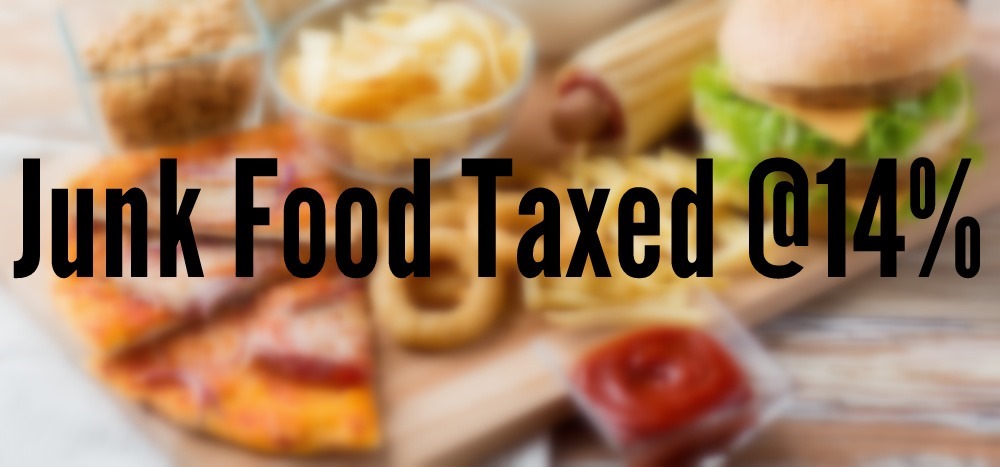Tax on Junk Food? Kerala Becomes the First State to Impose 14.5% ‘Fat Tax’

When Kerala imposed ban on public drinking of alcohol and restricting alcohol to only five star hotels, a lot of people were unhappy with the decision, but in the end it worked out fine for everyone. The state has now imposed another restriction to ‘junk foods’ by imposing a tax on the sale of such items.
Terming the tax as ‘fat tax’, Kerala Government has proposed adding a 14.5% tax on burgers, pizzas, tacos, fries, sandwiches, donuts and other similar food items. The whole exercise is to refrain customers from consuming and businesses from selling foods detrimental to one’s health.
The most surprising thing so far is that consumers will not be entirely paying for the burden, as most of it will have to be accommodated by these restaurants and fast food chains. It is not completely fair, considering consumers are equally involved in purchase of junk food.
Fat tax is not an alien term to Europeans, who have seen countries like Denmark and Hungary fall prey to these taxes, owing to lower life expectancy and fat-rich appetite. However, these taxes were applicable on items with more saturated fats and not only junk foods per se, and failed to make the impact as well.
The Indians, on the other hand, love junk food and chains like KFC, McDonalds and Burger King have seem to taken the junk food market by storm. The western culture became quite famous here and the volume of consumers with health issues rose quite drastically.
“The move is business-unfriendly. It calls out the organised, eating out sector. We cannot pass the burden entirely to consumers,” Pizza Hut managing director Unnat Varma said. Yes, consumers most likely will not be paying for it.
What does this mean for fast food restaurants in Kerala?
Such taxes have not proved to be successful in Denmark, where the food habits did not change as expected. However, a state like Kerala, with a population of 35 Million, can successfully implement this tax to make its denizens healthier by passing on the burden to consumers as well.
Food buyers are equally punishable for purchasing junk food items for consummation and cannot be exempted from this tax. Businesses, on the other hand, will suffer as they’ll have to shell out more money to produce the same ‘meal box’ or individual items to the customers.
Once the profits reduce, the companies might also think about exiting from the state altogether. Business cannot be sustained in this way, or else the prices of the food items will have to be increased, which in turn will drive customers away and ultimately cause the business to fail.
In any case, it is a trap for the restaurants in Kerala, especially ones that only sell fast food items in its menu. Kerala will benefit from this, not only in terms of improving the quality of life, but the money collected can be used for other activities in the state.
Do you think this tax is unnecessary and the citizens should be held equally responsible for this? Let us know of your thoughts in the comments section below.
